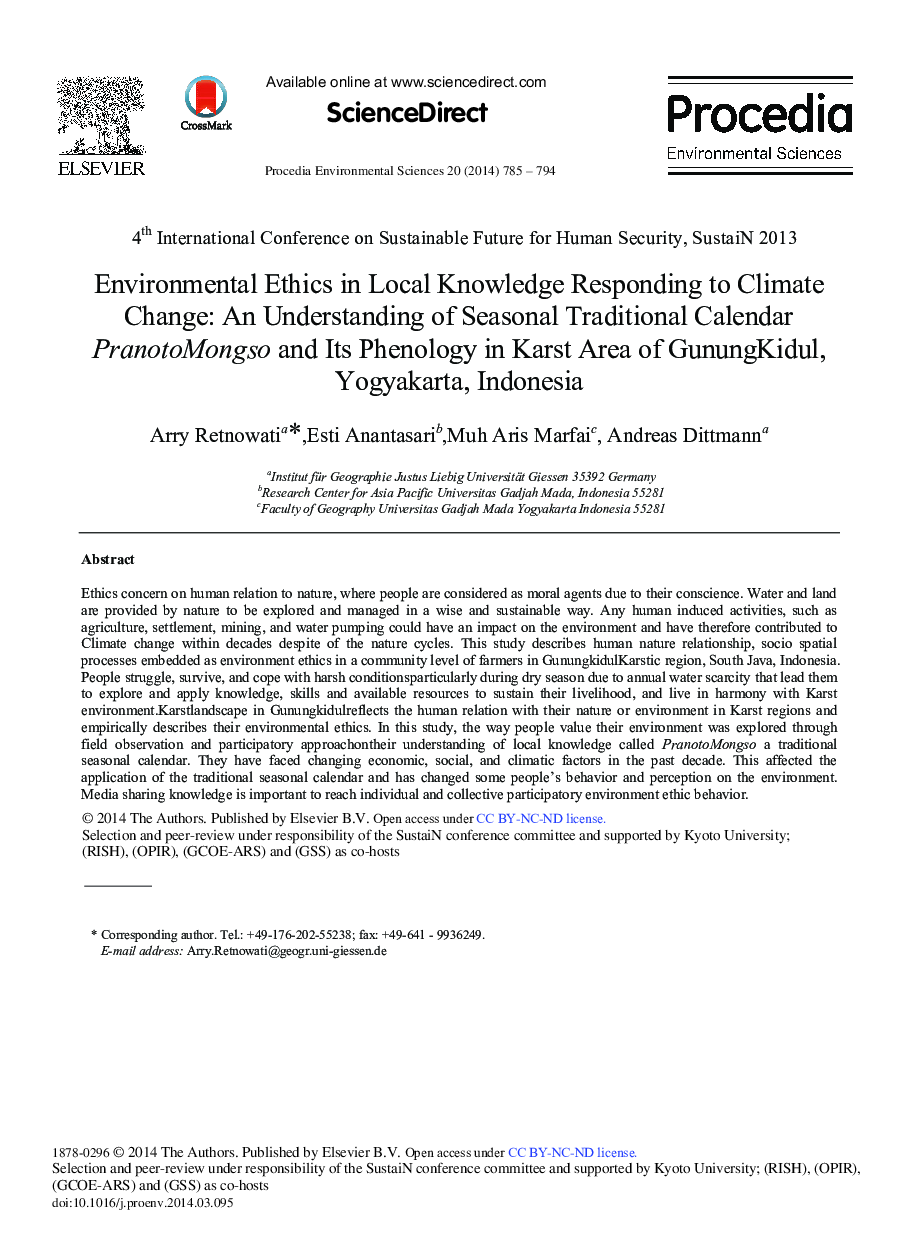| کد مقاله | کد نشریه | سال انتشار | مقاله انگلیسی | نسخه تمام متن |
|---|---|---|---|---|
| 4402287 | 1618624 | 2014 | 10 صفحه PDF | دانلود رایگان |

Ethics concern on human relation to nature, where people are considered as moral agents due to their conscience. Water and land are provided by nature to be explored and managed in a wise and sustainable way. Any human induced activities, such as agriculture, settlement, mining, and water pumping could have an impact on the environment and have therefore contributed to Climate change within decades despite of the nature cycles. This study describes human nature relationship, socio spatial processes embedded as environment ethics in a community level of farmers in GunungkidulKarstic region, South Java, Indonesia. People struggle, survive, and cope with harsh conditionsparticularly during dry season due to annual water scarcity that lead them to explore and apply knowledge, skills and available resources to sustain their livelihood, and live in harmony with Karst environment.Karstlandscape in Gunungkidulreflects the human relation with their nature or environment in Karst regions and empirically describes their environmental ethics. In this study, the way people value their environment was explored through field observation and participatory approachontheir understanding of local knowledge called PranotoMongso a traditional seasonal calendar. They have faced changing economic, social, and climatic factors in the past decade. This affected the application of the traditional seasonal calendar and has changed some people's behavior and perception on the environment. Media sharing knowledge is important to reach individual and collective participatory environment ethic behavior.
Journal: Procedia Environmental Sciences - Volume 20, 2014, Pages 785-794